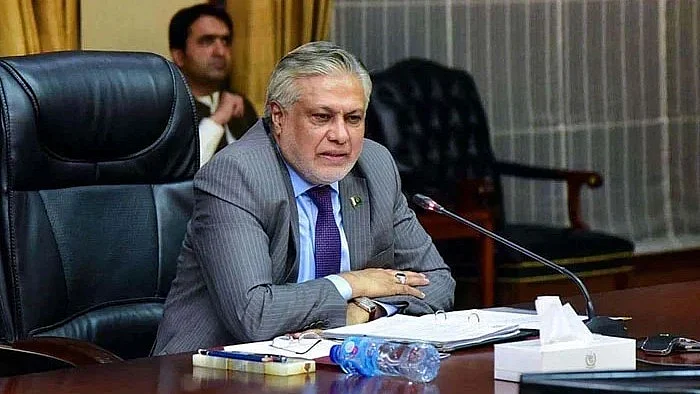Deputy Prime Minister Ishaq Dar’s recent remarks during the Foundation Day ceremony of the Institute of Strategic Studies in Islamabad mark a bold diplomatic stand on multiple fronts. From India’s aggressive behavior to the Middle East crisis, Dar’s message was loud and clear: Pakistan will not be cornered, and peace can only be achieved through justice and dialogue.
Addressing the escalating India-Pakistan relations, Dar challenged New Delhi’s long-standing strategy of unilateralism and intimidation. He asserted that India cannot impose its will on Pakistan through threats or provocative actions. By referencing false flag operations and ongoing cross-border tensions, Dar highlighted how Islamabad’s response has been measured but firm.
A particular flashpoint in recent weeks has been the Pahalgam incident, which Dar dismissed as a “false drama” orchestrated by India to justify aggression. His sharp rhetoric signaled Pakistan’s refusal to accept blame for regional instability created by Indian policies.
More alarmingly, Dar cautioned India against using water as a weapon—a reference to threats concerning the Indus Waters Treaty, a historic agreement brokered in 1960. His warning underscored the dangers of weaponizing shared resources in an already volatile region. “The treaty cannot be suspended unilaterally,” he emphasized, reiterating Pakistan’s resolve to protect its sovereignty.
Dar also returned to the core of Indo-Pak tensions—the Kashmir issue. He reaffirmed Pakistan’s long-standing position that Kashmir remains an internationally recognized dispute, not an internal matter of India. A peaceful resolution, he insisted, is essential for lasting peace in South Asia.
But Dar’s speech wasn’t limited to India alone. He turned his attention to Israel’s actions in Gaza, calling them “barbaric” and without precedent in history. He urged the global community to wake up and stop Israeli atrocities against the Palestinian people. This strong condemnation echoes Pakistan’s consistent support for the Palestinian cause and reflects the rising frustration in the Muslim world over the silence of global powers.
On the issue of Iran-Israel tensions, Dar welcomed the recent ceasefire and reaffirmed Pakistan’s support for Iran’s right to defend itself. He also called for renewed dialogue around the Iranian nuclear issue, suggesting that regional stability is linked not just to power balances, but to open diplomacy.
In the broader context of global politics, Dar praised Pakistan’s strategic partnership with China, referring to it as a “time-tested friendship.” He noted that the world is shifting from a unipolar to a multipolar system and that Pakistan is positioning itself as a responsible, balanced actor in this new order.
Ishaq Dar’s speech signals a recalibration of Pakistan’s foreign policy—rooted in sovereignty, diplomacy, and principled resistance to both regional and global injustices. The question now is whether India, and indeed the world, is ready to listen.

